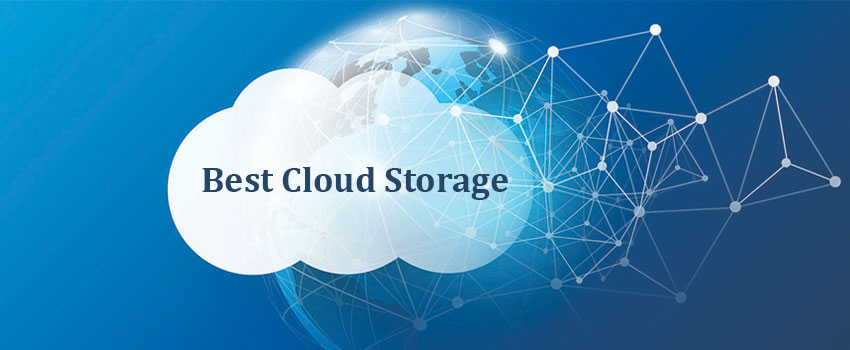The term ‘Cloud Backup’ is self explanatory in its meaning, such that it works to preserve information in a different location than its primary repository. It is keeping a copy of files saved on a remote cloud-based server, where you can access them when you need them. It fills in as a type of cloud storage, enabling you to save and retrieve data from different dispersed and associated servers that make up a cloud. Regardless of whether you need a straightforward spot to store backup pictures or a progressively intricate framework that takes into account super-speedy recovery in case of a catastrophe, such as a fire or a theft, there is a clean up-to-date copy of your information reserved on a server some place, all free from any potential harm. This helps prevent data loss and the files can be accessed from home or any location using a client login app, or a software installed on your computer that routinely backup your data.
FREE TRIAL FOR 30 DAYS – TRY IT NOW
A CLOUD BASED BACKUP SOLUTION
Cloud backup is relentlessly turning into a standard for both giant and small organizations alike. Numerous analysts have anticipated cloud computing and its related services to be the next big revolution in IT. Businesses are continuously turning to the cloud because of the undeniable business benefits that comes up with its use. The functionality of the cloud represents the least demanding approach in planning an off-site backup for your significant documents or files. It also helps you connect various datasets separated by location, having all the data managed, accessed and controlled in the cloud. With the rise of cloud computing and software-as-a-service (SaaS) options being available to the public, such as BigCommerce, Office 365, Dropbox, HubSpot, where third-party virtual servers hosts data and makes it accessible at the simple click of a button, a few people might think backing up the data may not be very important since they can rely solely on their SaaS provider. This is a hazardous mindset to have, since this does not shield your data from human error, or a malicious attack that has also compromised the systems at hand. Thus, it is significantly important to independently have all your data backed up, regardless of the overall data footprint. Organizations will keep on moving more information to the cloud for security, performance and flexibility.
CLOUD BASED BACKUPS AND HOW THEY WORK
It’s quite simple. The files stored on your primary storage device, such as your computer or mobile phone, are first selected and compressed. The software being used then encrypts the data before uploading it on the backup software, where the decryption process can only proceed when you allow it to. A number of encryption methods can be used for this process, where standard encryption methods include SSL (Secure Sockets Layer) and TLS (Transport Layer Security) protocol. It is important that the internet you use with this service implements the AES (Advanced Encryption Standard) with the FIPS 140-2 certification, which will ensure that during or after the data transmission process, it all remains encrypted, secure and cannot be intercepted or accessed without the encryption keys or decryption keys. Through this process, the cloud backup stores copies of your data as a remote server backup. Options for cloud backup include:
- Backing up to the public cloud Backing
- up to a service provider Cloud-to-cloud
- Back up
Incremental backups are done over time to reduce the time and amount of bandwidth used. The storage capacity of your cloud is flexible with the plan you choose under the cloud service provider, which provides you with their remote servers and data center for storing your data.
EVERY SMALL BUSINESS NEEDS CLOUD BACKUP
A conventional backup would require additional time, resources, hardware, software, maintenance costs, added manual labor put into their maintenance and upkeep, initial configuration, limited flexibility, and set up costs, not to mention more IT employee salaries. For most organizations, a cloud backup and recuperation arrangement will dispose of or altogether lessen related costs identified with the most responsible undertaking of backup. Cloud backup also enables your data to be made available to you whenever you prefer. Working with a trusted cloud backup specialist organization helps you focus on your existing system framework while moving the duty of backup to a virtual storage that offers unlimited storage. This can be increasingly significant, considering the difficulties a few organizations are confronting in trying to find experienced IT backup staff for on-premise arrangements, particularly in little urban communities or remote areas. It thus lets you concentrate on initiating huge transformational success upfront, as opposed to wasting your valuable time at backup and recovery planning in case of a crash or a disaster which is being handled by the cloud backup data center. A cloud backup boasts flexible storage in a pay-per-use for capacity, you can easily back up and forget about it. It keeps working in the background with incremental backups, and does not require much of manual stress over set up, upkeep and upgrades either, along with ensuring reliable recovery. In addition to all this, a server backup protects your information from natural disaster, fires, weather disturbances, local burglary or power outages. Considering all this, cloud processing significantly brings down the all-out expense of the business by taking out the critical upfront and progressing costs. This empowers associations to channel more assets into developing their business. In essence, small businesses cannot afford to lose valuable data and need a contingency plan in case of any unwanted events.
CONTINGENCY PLANNING FOR YOUR BUSINESS DATA: THE 3-2-1 RULE
The ‘3-2-1 rule’, a timeless rule used in backup to prevent data loss, states:
- Keep at least 3 copies of your data
- Store these copies on at least two different mediums
- Have a single backup copy saved offsite
A 3-2-1 approach shows that at any instant of time, three copies of your information exist in which two of them are rapidly available that are stored in the form of local backup, while one copy is readily available offsite. For example, the first copy is your own operating system that has the files, an external hard drive has another copy, and the third copy exists with a cloud backup provider. So, you increase the number of locations your information is saved or available at to diminish the probability of losing your information. The 3-2-1 rule is used as one of the primary tips to keep your data safe and as such should be considered when assessing your backup plan.
COST AND RESOURCE SAVING THROUGH BACKUP SOLUTIONS
Businesses that move to cloud backup do so by looking at the overall infrastructure cost, speed and flexibility the cloud backup systems provide. According to a report from Kaspersky Lab, for an independent venture, an information breach can cost an individual as much as $46,000 for private companies and $620,000 for bigger businesses. Cloud backup incorporates the expense of a fine disruption of representative work process and extra expenses for vital steps that reestablish the security of your organization information and system.
In any case, this does not imply that the results of a data breach are simply financial, it can likewise affect the trust and reputation of your organization. It will affect the eventual fate of your firm and can so reduce future development openings. Organizations are legitimately held in-charge of data theft, an example being money related subtleties and classified customer records. A few organizations are oblivious about the hurtful impacts these vulnerabilities can force upon their organization and how they jeopardize future growth. Thus, it is highly necessary now more than ever to apply adequate security to the
data being uploaded.
FACTORS SMALL BUSINESSES SHOULD CONSIDER WHEN CHOOSING ANY BACKUP SOLUTIONS
Backups regularly incorporate sensitive information. As you’re confirming sellers for data protection services, it become more acquainted with their security rehearses. It is also important to note that whether your cloud service provider is able to provide services of the size and caliber that you need for your business. A great way to confirm this is by seeing if similar business have signed up for this service. The best cloud backup services usually take into account the following factors:
- Credibility of the cloud storage provider meeting security certifications. The quality of
- information encryption.
- The type of encryption being used, along with the security policy for your backup plan
- Levels of security and access granted to other personnel if need be, without giving complete access to the account.
- Whether you have flexibility in terms of an SLA (Service Level Agreement) and making sure you can move your data if the need arises.
- A security review of data stored in the cloud.
- Recovery plan in case of a disaster.
SECURITY AND DATA PROTECTION
Security represents one of the most primary factors assessed during any organization’s feasibility planning towards the cloud. The reason stands that businesses are very hesitant to share their information with the cloud backup service providers, unlike conventional IT based foundation where the control lies with the IT personnel. This is the reason why choosing a secure and reputable cloud service provider is extremely important, since many businesses may share data including names, addresses or billing information, credit card information, health records, etc., that need to be maintained securely for a reason. Independent of the sort of information breach, your organization will absolutely encounter extreme repercussions, such as personal time and labor, along with costly lawful expenses. Tight security measures help preserve your brand’s image and act as a viable small
business solution.
- Credibility of the cloud storage provider meeting security certifications. The quality of
- information encryption.
- The type of encryption being used, along with the security policy for your backup plan
- Levels of security and access granted to other personnel if need be, without giving complete access to the account.
- Whether you have flexibility in terms of an SLA (Service Level Agreement) and making sure you can move your data if the need arises.
- A security review of data stored in the cloud.
- Recovery plan in case of a disaster.
CLOUD BACKUP AND THE PATH LOOKING FORWARD
More and more businesses are choosing not to set up expensive data infrastructures anymore and are shifting to cloud backup in order to keep their data safe. This is so that when information loss and downtime occurs, the idea of a smart contingency plan through cloud backup does not seem like an idea in retrospect. In case of a global organization, a few districts command that information stockpiling stay in that locale without transfer into another area. In a mixture cloud condition, you can keep information together in the cloud without expelling datasets from a particular district. The flexibility of the cloud storage along with improved collaboration between data sets allows you to do this. Introducing a powerful cloud-based backup arrangement for your business data guarantees that your information is always secured, can be retrieved from anyplace whenever you require, and can be quickly recouped if there should arise a catastrophe or any unforeseen events.
Cloud backup is a must in this day and age, and with cloud based backup solutions, you can undoubtedly modify your storage plans using incremental backups to follow any requirements of your business without bringing any additional expenses, as you only pay for what you use, hassle-free.
Go to backupeverything.co.uk for more information on cloud backup and how to incorporate it for small businesses.



